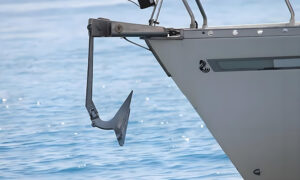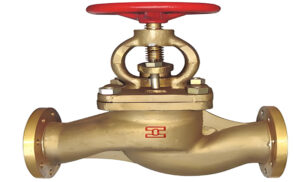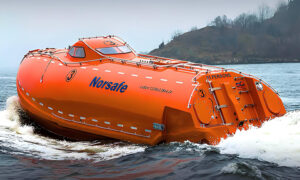As for the complex operations of marine vessels, one of the crucial components is usually neglected. They are the marine fuel cut-off valves. These valves are not only optional components but also crucial tools. They provide protection for the stable operations and security of ships on the seas.
What Is Marine Fuel Shut-off Valve?
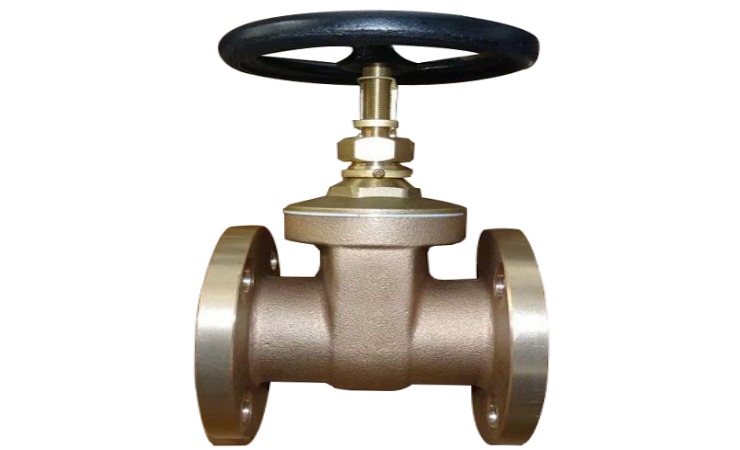
Marine fuel shut-off valve is a vital component in marine fuel systems. It provides oil to engines or any other fuel-consumption devices by manual control. These valves are designed to stop the provision of fuels in emergencies such as fire, leaks, and other possible dangerous situations on ships.
To the security of marine vessels and their crew, ship fuel shut-off valves are essential. They provide a method of isolating the fuel source, and it helps to prevent the upgrading of potential accidents. Moreover, these valves contribute to avoiding fuel leaks flowing into maritime environments. It is beneficial to reduce the risks of pollution and environmental damage.
Except for the security functions, the shut-off valves for ship fuel can isolate the specific fuel pipes during maintenance or repairs to enhance operational efficiency rather than disrupting the whole fuel system. This method has a specific target, so it helps to reduce downtime and simplify the maintenance procedures on ships.
The Crucial Role of Marine Fuel Shut-Off Valves in Safeguarding Ships and Crew

When there is fire on a boat, a rapid and precise operation of cutting off marine fuel shut-off valves can determine the result of containment or catastrophe. These valves cut off the provision of fuels speedy to prevent the expansion of flame so that they can protect the security of people and the integrity of the whole ship.
Another danger that ships may come across is fuel leaks. They threaten not only ships and their crew but also marine ecosystems. In this situation, the ship fuel shut-off valve is the first protective line. It has the capability to stop the fuel flow immediately to control the leaks and damage to the environment.
Collisions and engine failures are scenarios that can quickly escalate into emergencies at sea. In these critical moments, marine fuel cut-off valves play a pivotal role in minimizing risks. By isolating damaged fuel lines and halting fuel flow in the event of engine malfunctions, these valves help prevent further damage and reduce safety hazards.
In emergency evacuations, every second can determine the result. Marine fuel shut-off valves make sure that the fuel systems can be controlled and stop operating. This property lowers the risk of fires and explosions during the evacuation. The rapid activities of these valves ensure the crew members’ safety and the orderly evacuation in dangerous periods.
Are Marine Fuel Shut-Off Valves Necessary on All Ships?
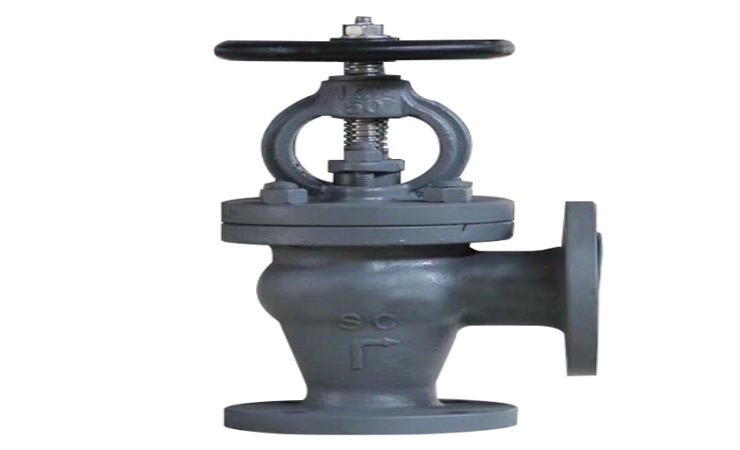
Marine fuel shut-off valves are indispensable safety mechanisms across diverse ship types. Cargo ships, with their intricate fuel systems and expansive fuel tanks, rely on these valves to avert catastrophic fuel leaks and fires. Passenger ships, often carrying large numbers of individuals, necessitate shut-off valves for swift fuel cutoff during emergencies to uphold passenger safety. Tankers, transporting substantial liquid cargo like oil and chemicals, utilize these valves to prevent spills and environmental calamities.
Fishing vessels, operating in remote and challenging environments, employ shut-off valves to mitigate risks such as fires and fuel leaks, safeguarding both crew members and the marine ecosystem. Tugboats, crucial for docking and maneuvering larger vessels, make use of these valves to promptly halt fuel flow in crisis situations, ensuring the safety of the vessel, crew, and assisted ships.
Yachts and pleasure boats, though smaller in scale, benefit from shut-off valves for ship fuel as critical safety features, enabling rapid fuel cutoff to address emergencies and avert potential hazards. In essence, these valves play a pivotal role in upholding safety standards, averting risks, and preserving environmental integrity across various ship categories.
Best Marine Fuel Shut-Off Valve Types for Different Ships
For cargo ships, gate valves are often preferred due to their robust design, providing effective shut-off capabilities that are well-suited for the intricate fuel systems typically found on such vessels.
Passenger ships commonly utilize Emergency Shutdown (ESD) valves for their ability to swiftly close in emergencies, ensuring the safety of passengers by quickly halting fuel flow during critical situations.
Butterfly valves are commonly used for tankers because of their reliable and accurate control. This feature is critical to managing the flows of various liquid cargo loaded on ship types.
Ball valves possess the properties of durability and easy operational processes, so they are prevalent among fishing boat operators. That also means that they are suitable for the challenging conditions in fishing operations.
Solenoid valves are a popular choice for tugboats, providing remote control capabilities and rapid response times that are beneficial for vessels involved in towing and docking tasks.
Needle valves are commonly used on yachts and pleasure boats for their precise flow control, allowing for fine adjustments to fuel flow in smaller vessels where accuracy is important.

